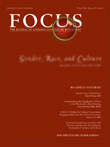This issue of FOCUS reflects the remarkable breadth, diversity, and complexity of psychosomatic medicine. Which antidepressants are the best choice for a depressed patient with cardiovascular disease? When an HIV-infected patient presents with psychosis, what workup should we do, and what treatments should we consider? How do we treat a normal-looking person who is convinced that he looks like the Elephant Man and feels suicidal as a result? These diverse questions, which are addressed in this issue, belong to the realm of psychosomatic medicine and consultation-liaison psychiatry. Psychosomatic medicine is generally considered to focus on patients with comorbid psychiatric and general medical conditions that complicate one another’s management; patients with a psychiatric disorder resulting from a primary medical condition or its treatment; and patients with a somatoform, factitious, or “functional” disorder. Often clinicians who specialize in psychosomatic medicine practice in consultation-liaison settings or in settings in which mental health services are integrated with medical or primary care treatment. However, all of us, regardless of our specialty or practice setting, may encounter such patients, and often their problems are complex and clinically challenging.
It was difficult to select topics from this broad field to include in this issue. The first article provides a brief clinical synthesis on body dysmorphic disorder, a severe and relatively common—yet highly underrecognized—somatoform disorder that often presents to surgeons, dermatologists, and other physicians, including psychiatrists in a wide range of practice settings. Additional original articles provide cutting-edge, engaging, and very informative reviews on a variety of topics. Schulman, Muskin, and Shapiro’s review of cardiovascular disease and psychiatric illness documents the high comorbidity between these conditions, discusses treatment approaches, and highlights important findings on comorbidity—for example, that depression increases the risk of cardiovascular disease and mortality from cardiac illness and that anxiety and anxiety disorders increase the risk of sudden cardiac death. Fernandez discusses and debunks 10 myths about HIV infection and AIDS that psychiatrists need to know, and Rifai and Rosenstein review key information for psychiatrists about hepatitis C, which is surprisingly common in patients with psychiatric illness. Gotto offers helpful, clinically focused guidelines for psychiatrists who are asked to evaluate candidates for liver transplant. This issue also includes reprints of published articles, abstracts, and a bibliography, which also attest to psychosomatic medicine’s fascinating and varied terrain. Reprinted articles focus on such topics as how to manage bipolar disorder during pregnancy and the postpartum period, how to treat delirium, use of dialectical behavior therapy for difficult-to-treat patients in the general hospital setting, how to assess and manage depression in terminally ill patients, and end-of-life care. I hope you find this issue of FOCUS timely, illuminating, and helpful in your day-to-day clinical practice.

